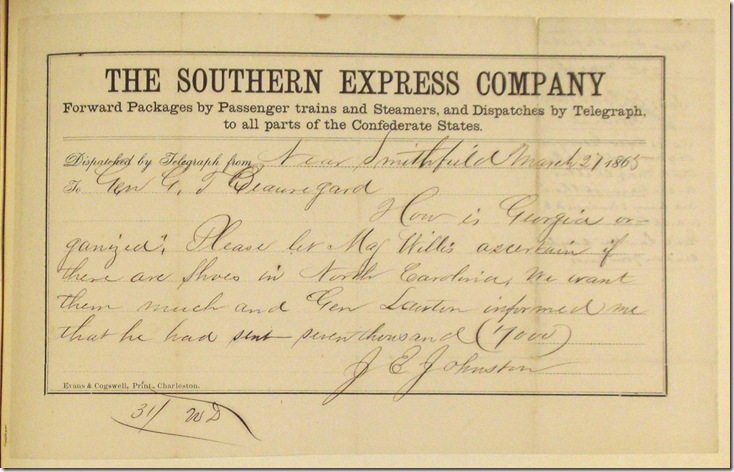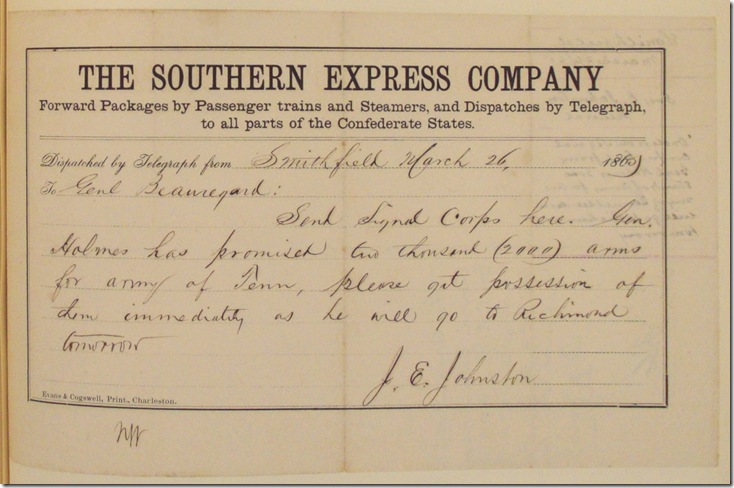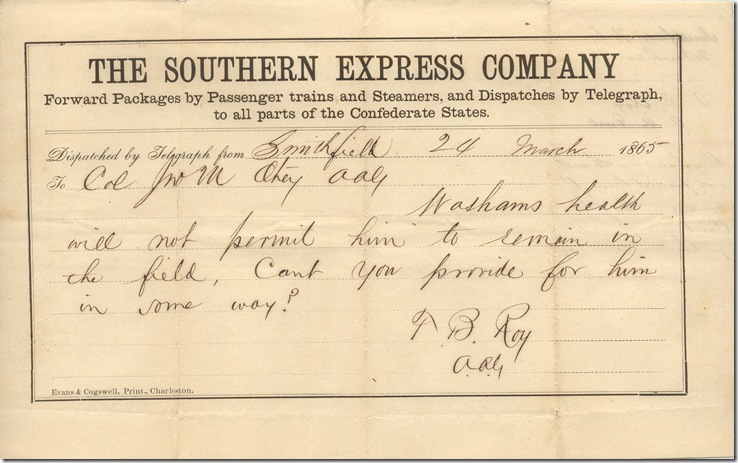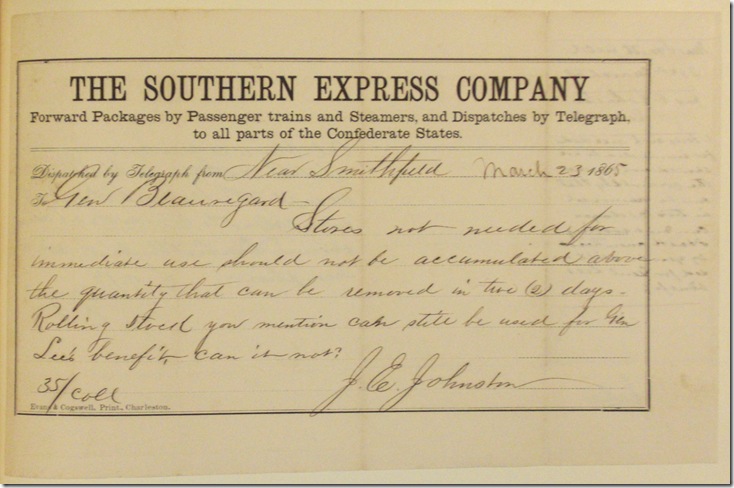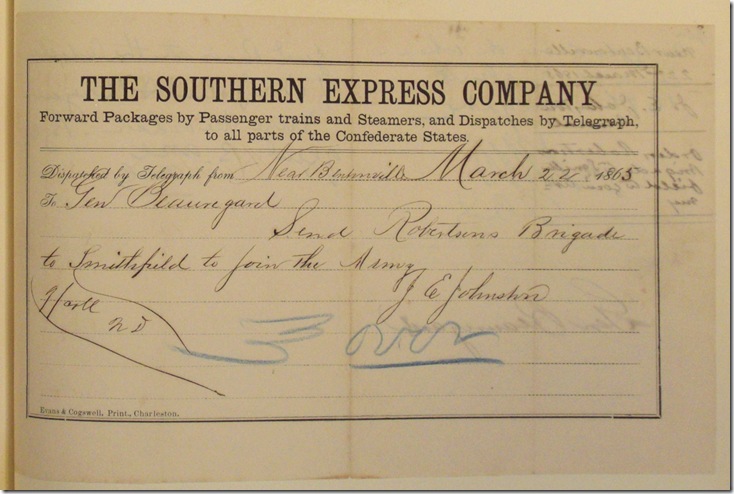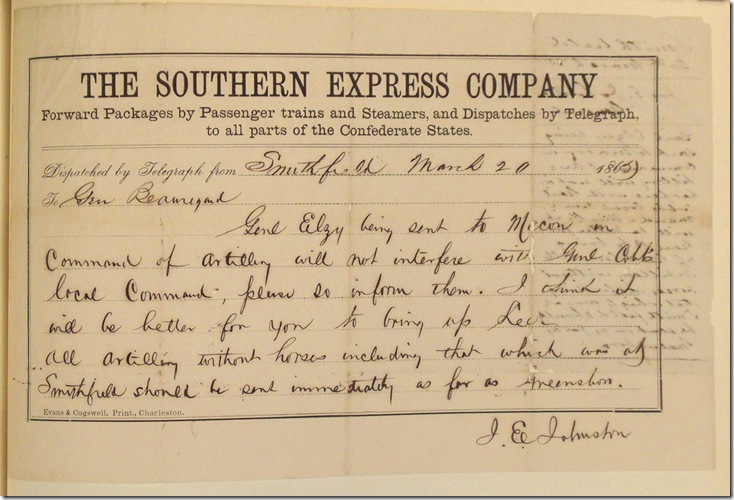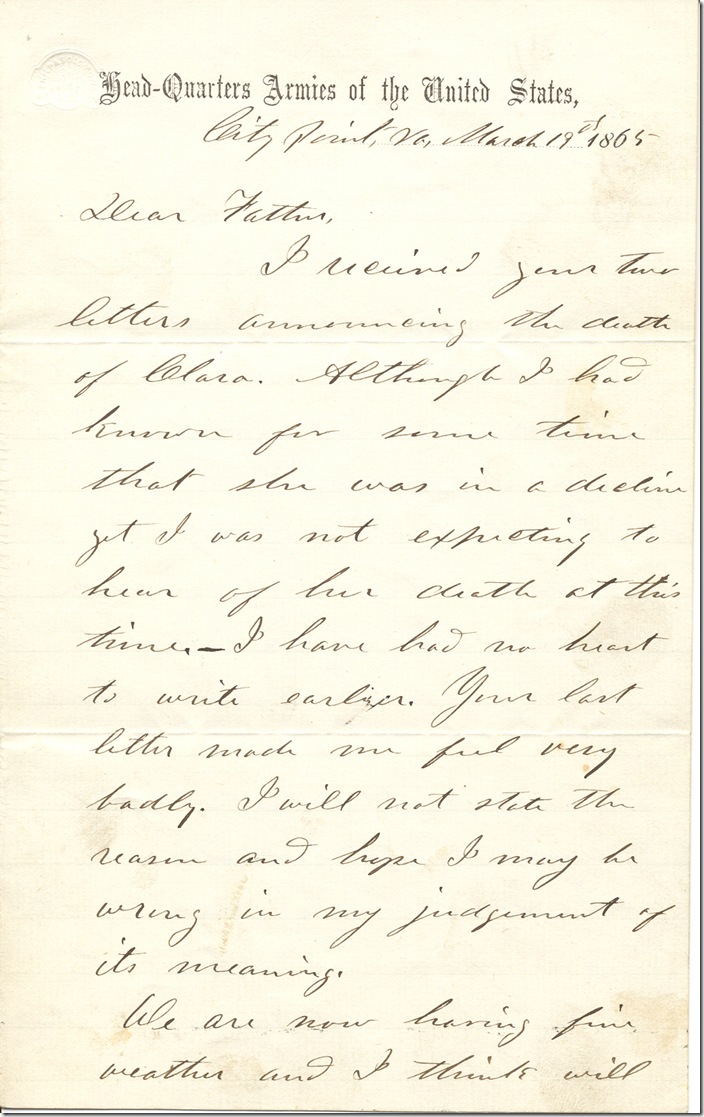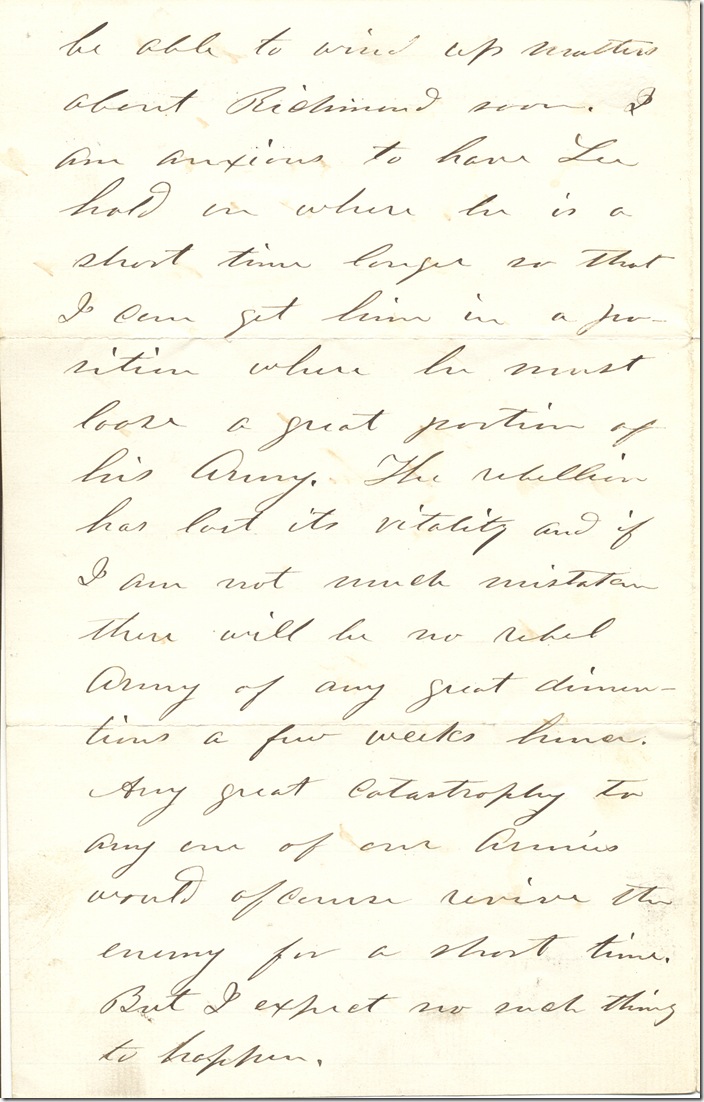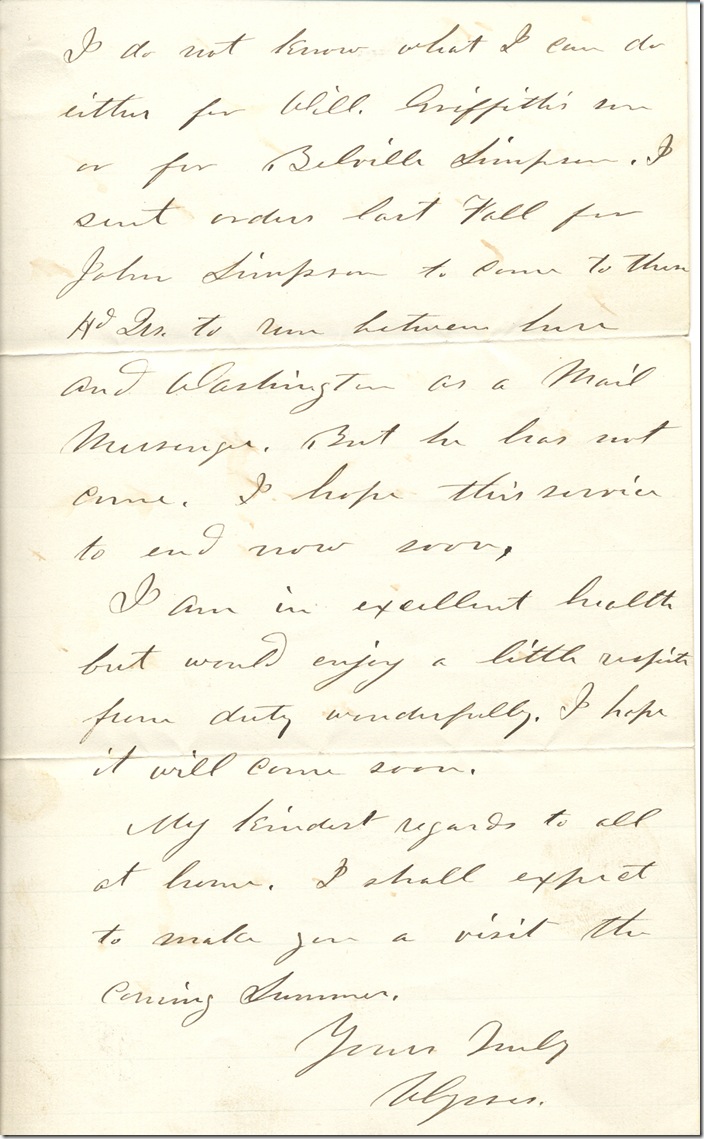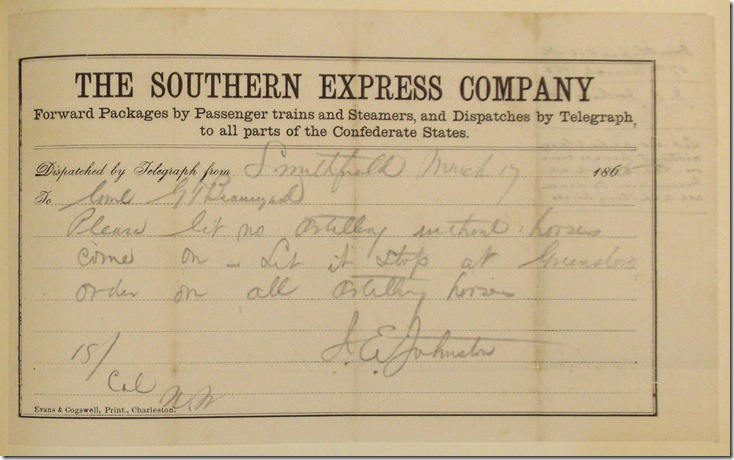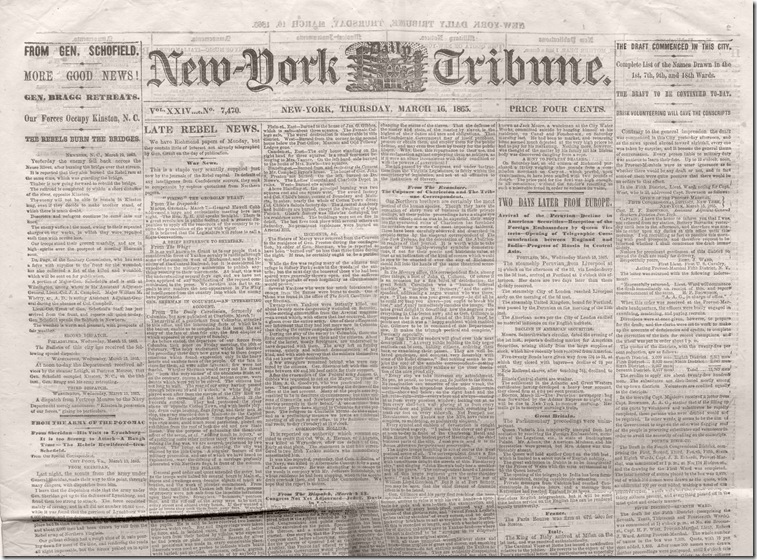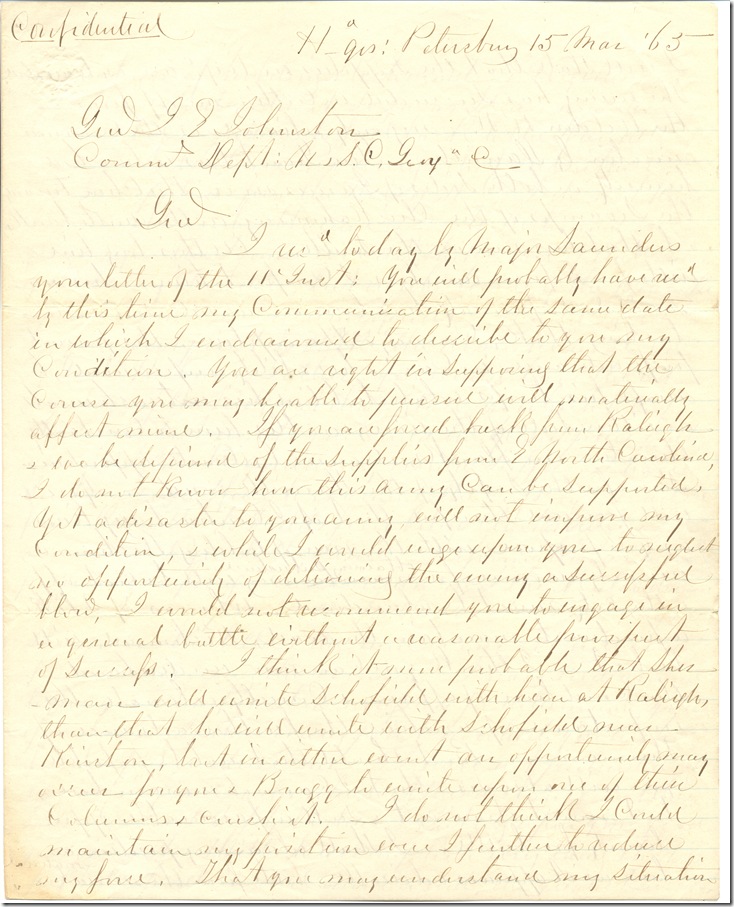
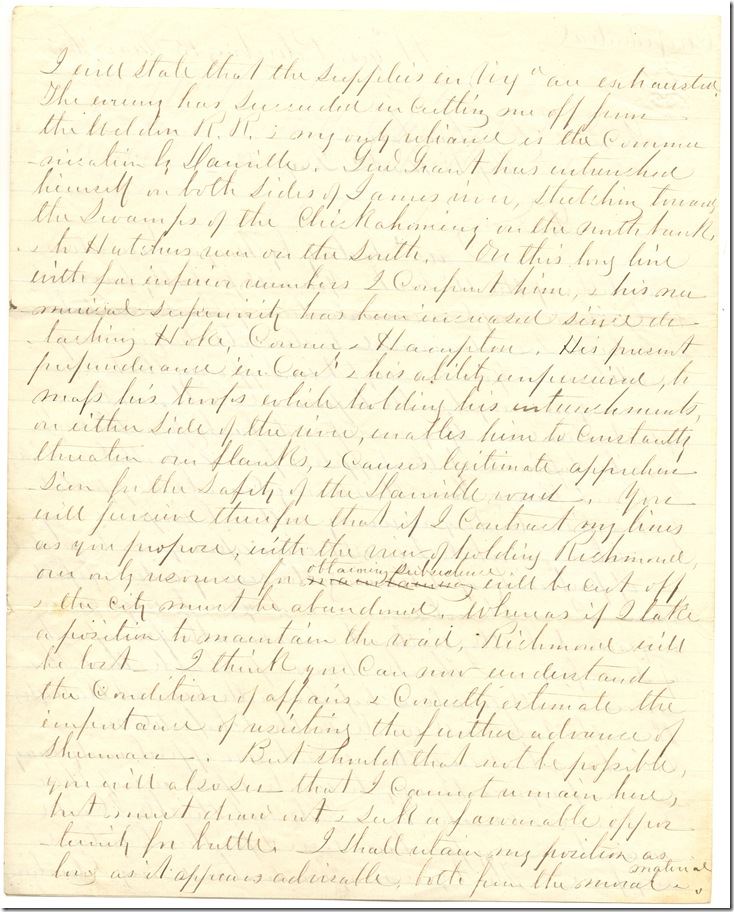
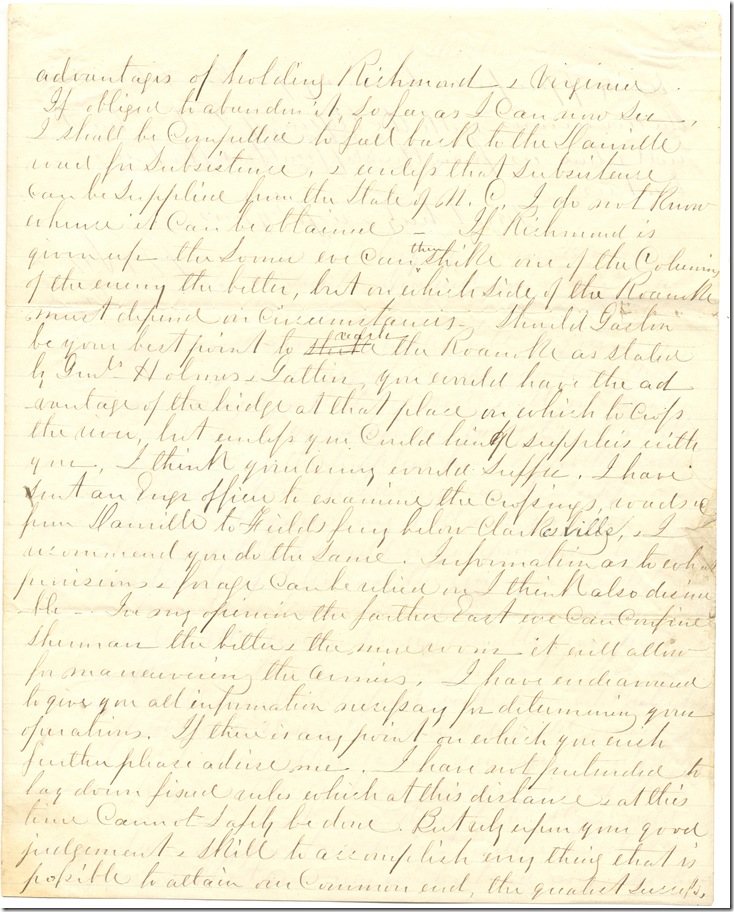
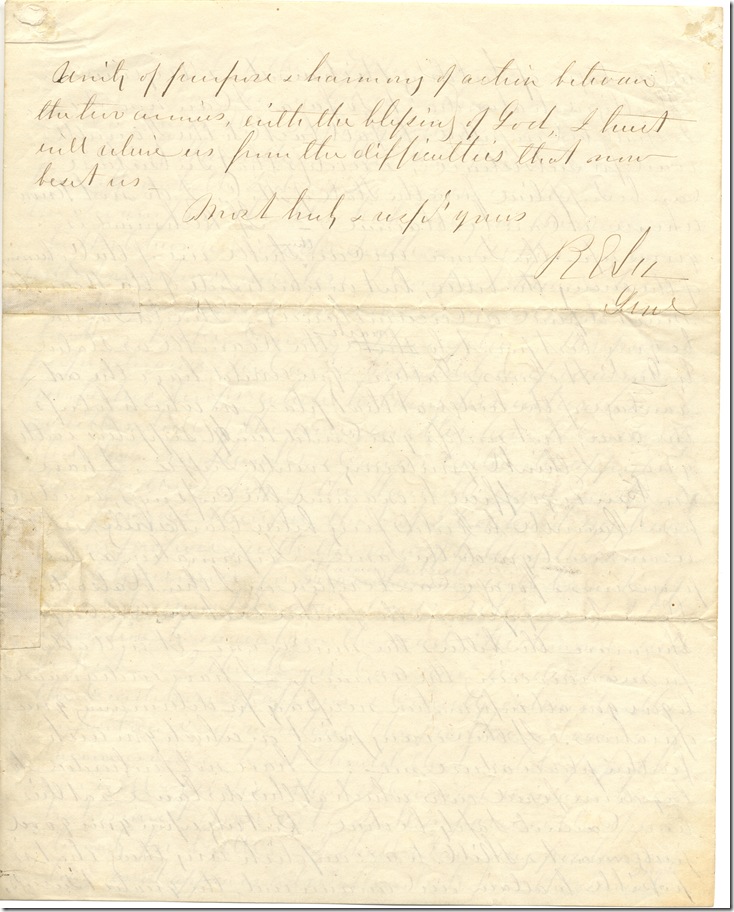
Transcript:
Confidential
Hdqrs: Petersburg 15 Mar ‘65
Genl J E Johnston
Commd Dept: N, S C. Georgia &c
Genl
I rec’d today by Major Lauridus your letter of the 11 inst: you will probably have rec’d by this time my Communication of the same date in which I endeavored to describe to you my Condition. You are right in supposing that the Course you may be able to pursue will materially affect mine. If you are forced back from Raleigh & we be deprived of the supplies from E. North Carolina, I do not know how this Army can be supported. Yet a disaster to your army will not improve my condition, & while I would urge upon you to neglect no opportunity of delivering the enemy a successful blow, I would not recommend you to engage in a general battle without a reasonable prospect of success. I think it more probable that Sherman will unite Schofield with him at Raleigh, than that he will unite with Schofield near Kinston, but in either event an opportunity may occur for you & Bragg to unite upon one of their Columns & crush it. I do not think I could maintain my position were I further to reduce my force. That you may understand my situation I will state that the supplies in Virga. are exhausted. The enemy has succeeded in cutting me off from the Weldon R.R. & my only reliance is the Communication by Danville. Genl Grant has entrenched himself on both sides of James river, stretching through the Swamps of the Chickahominy on the north bank, & to Hutchins river on the South. On this long line with far inferior numbers I Confront him, & his numerical superiority has been increased since detaching Hoke, Corner & Hampton. His present preponderance in [illeg.]l & his ability [unpursued?]to mass his troops while holding his entrenchments, on either side of the river, enables him to constantly threaten our flanks, & causes legitimate apprehension for the Safety of the Danville road. You will perceive therefore that if I contract my lines as you propose, with the view of holding Richmond, our only resource for obtaining subsistence will be cut off & the city must be abandoned. Whereas if I take a position to maintain the road, Richmond will be lost—I think you can now understand the condition of affairs & correctly estimate the importance of resisting the further advance of Sherman. But should that not be possible, you will also see that I cannot remain here, but must draw out & seek a favourable opportunity for battle. I shall retain my position as long as it appears admissible, both from the moral & material advantages of holding Richmond, Virginia. If obliged to abandon it, so far as I can now see, I shall be compelled to fall back to the Danville road for subsistence, & unless that subsistence can be supplied from the state of N.C. I do not know whence it can be obtained. If Richmond is given up then some one can then strike one of the Columns of the enemy the better, but on which side of the Roanoke must defend on circumstances—Should Gaston be your best point to reach the Roanoke as stated by Genls Homes & Gatlin, you would have the advantage of the bridge at that place on which to cross the river, but unless you could bring supplies with you, I think your Army would suffer. I have sent an Inf. officer to examine the crossings, roads &c from Danville to Fieldsburg below Clarksville, & I recommend you do the same. Information as to what provisions & forage can be relied on I think also desirable. In any opinion the farther East we can confine Sherman the better & the more room it will allow for maneuvering the Armies. I have endeavoured to give you all information necessary for determining your operations. If there is any point on which you wish further please advise me. I have not intended to lay down fixed rules which at this distance, at this time cannot safely be done. But rely upon your good judgment & skill to accomplish everything that is possible to attain our Common end, the greatest success, unity of purpose & harmony of action between the two armies, with the blessing of God, I trust will relieve us from the difficulties that now beset us.
Most truly & resp’y yours
R. E. Lee
Genl
Citation:Robert E. Lee (1807-1870), autograph letter signed to Joseph E. Johnston. Petersburg, Va.; 15 March [18]65. AMs 360/2
